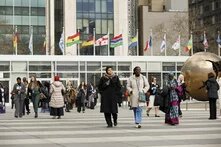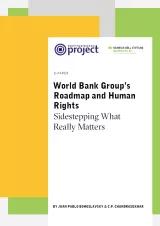Global Development Policy
Articles
More articles about Global Development Policy (98)
Dossiers
More dossier about Global Development Policy (9)
Publications
More publications about Global Development Policy (130)
More pages about Global Development Policy
© Heinrich-Böll-Stiftung e.V.
Schumannstraße 8
10117 Berlin
T +49 (30) 285 34-0
F +49 (30) 285 34-109
www.boell.de
info@boell.de




























